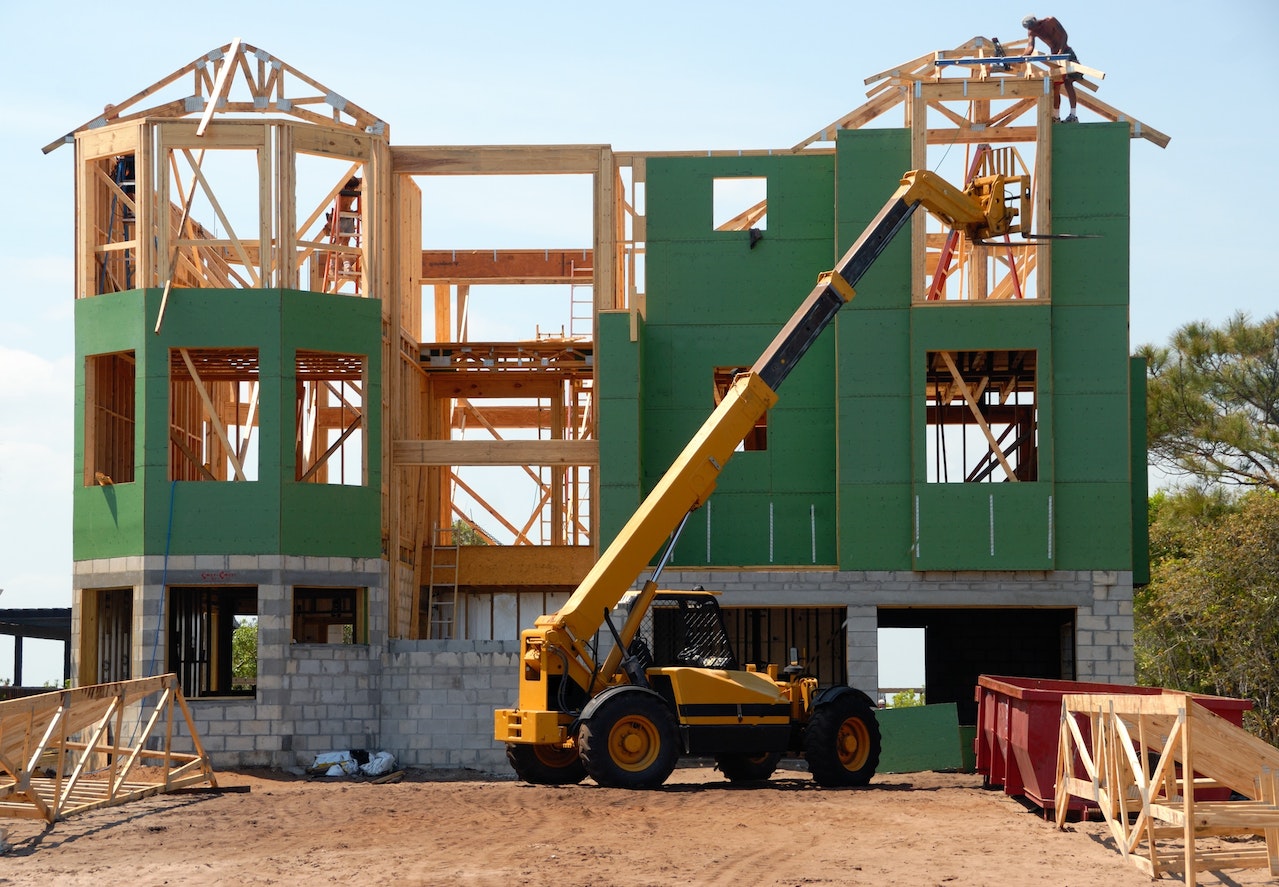
What history looms behind your front door?
___
Published Date 6/18/2024
If you love watching shows like Antiques Roadshow, you already know how much fun it is to discover the provenance — the story — behind every ornate urn with a Japanese stamp on its bottom, every Civil War sword, and every collection of baseball cards. But did you consider that your own house has a provenance as well?
If your house is nothing near new, you might want to know a few things about it — such as previous construction work, previous sales, names associated with the address, significant environmental information, deaths that took place on your property, or even the history of fires or gas leaks reported on the property as well as any past meth activity.
The first thing to note before you go scouring for public records and historic documents about your house? Be careful what you wish for. Be ready to deal with the issues that may arise from knowing more.
US News’ Josephine Nesbit reminds you, “If you discover major issues with a property you own – whether it's soil contamination that makes it dangerous to live there or a murder that occurred in the house – you may have to disclose the information to would-be buyers when you try to sell the property.”
On the other hand, the more you know, the better equipped you will be to restore a historical property, make the structure safe for your family or simply stay away if it's a home you haven't purchased yet, according to Nesbit, who offers a few ways to get your questions answered.
You can start with the Bureau of Land Management, General Land Office, which has digitized its collection of more than 5 million federal land title records, making it possible to pull up images of original documents signing land over to private individuals dating back to 1788.
“Survey plat maps, land patents and field notes on properties show the formation of property lines,” says Nesbit. “All the information is searchable with the state name, name of the patentee or even minute details for the property, such as township and range number if the property is in a township, and survey number and issue date.”
While the free searchable collection of documents only covers property in the public domain (which excludes Hawaii and counties in some other states), details for properties in those places should be available through an online or in-person search through the state's archives.
Another avenue is through your local assessor's office, often at the county level. This is where records of all properties under its jurisdiction become valuable resources for information regarding a home's ownership history and legal record.
Nesbit explains, “While some assessor's offices require an in-person visit to access property records for free, most are available and searchable online. Many online records show current property owners, land and structure values, and assessed value for tax purposes. You may also find a legal description of the property and previous deeds documenting the sale of the property.”
She adds that if you don't see extended historical documents about your property, reach out to the local assessor's office to see if it's possible to have that information made available to you. Some offices charge a fee to make copies of documents and send them to you if you can't visit in person.
Who walked those halls before you in the recent as well as the far past? Census records will give you details about the identity and number of people who previously called the place home. Nesbit reminds us that the first Federal Population Census was taken in 1790 and has been taken every 10 years since.
“For privacy protection reasons, census records are confidential for 72 years, according to the U.S. Census Bureau, so you'll be unable to look up census details for a specific address or individual after 1950, unless it's about yourself or a direct ancestor of yours.
Census records from 1790 to 1940 are available to the public through the U.S. National Archives and Records Administration."
Don’t forget about looking for information in your local library or historical society archives, as these entities are locally focused and often keep archives of local newspapers. You may be able to find out news or events revolving around your house and the people who lived there previously.
Some homeowners know if the previous owner died in their house. If it’s recent, some states (like California) require it to be disclosed. If you want to go farther back, however, DiedInHouse.com can tell you the name of people associated with the address over time – if someone has died in a home, if there were any previous fires on the property or if it was ever used as a meth lab, among other details.
This is also where you’d start if you are convinced your house or rental is haunted, which, of course, is very hard to prove but might not put your fears at rest but might at least explain a few bumps in the night. The founder of this website says his goal is to help people learn more about a property that may or may not have to be disclosed in a sale, like its connection to a serious crime or incidents that could compromise the safety of the building. There is a small charge for using this search site.
Nesbit also found HouseNovel.com to be a public record information crowdsourced collective of stories connected to addresses. “It aims to function ‘as if Zillow and Ancestry.com had a baby,’ says its CEO and founder, Amanda Zielike.
The free platform launched in 2022 and is still adding property information across the U.S., with its most robust property information in Minnesota, where the company is based. “You can go in and search any property in the United States… and sign up if you want to save and follow homes,” Zielike says.
If your concern is an environmental one, try Nationwide Environmental Title Research, better known by its acronym, NetroOnline. It offers an array of information from its databases and partner information companies, as well as links to local assessor offices across the country and has become a standard resource for many financial institutions. The site streamlines the research process on a home, making it easier to get documents as opposed to making a trip to the courthouse.
USNews, TBWS
All information furnished has been forwarded to you and is provided by thetbwsgroup only for informational purposes. Forecasting shall be considered as events which may be expected but not guaranteed. Neither the forwarding party and/or company nor thetbwsgroup assume any responsibility to any person who relies on information or forecasting contained in this report and disclaims all liability in respect to decisions or actions, or lack thereof based on any or all of the contents of this report.


Millenium Home Mortgage
Manager
NMLS: 51519
Millenium Home Mortgage LLC
1719 Route 10 East, Suite 206, Parsippany NJ
Company NMLS: 51519
Office: 973-402-9112
Email: connie@mhmlender.com

Millenium Home Mortgage
___
Manager
NMLS: 51519
Last articles
___

From cash deals to builder confidence, housing market signals new chapter
12/23/2024
Sometimes what seems to be denied is only delayed...... view more

Markets expect little volatility this week
12/23/2024
Tuesday the stock and bond markets will close early, off on Wednesday then...... view more

Understanding Your Rights When Government Claims Your Property
12/20/2024
The government's power to seize private property through eminent domain has deep... view more

A quick guide to child-safe holiday celebrations
12/17/2024
Hosting friends and family for the holidays? Perhaps simply...... view more

November Headline Retail Sales were higher than expected
12/17/2024
The headline November Retail Sales were higher than expected, up 0.7% versus est... view more

The hidden price of holiday spending: Your dream home at risk
12/16/2024
Saving for a rainy day — or a house — is not on as many people’s minds...... view more

Markets will be focused on FOMC this week
12/16/2024
Last Friday the 10 year note +7 bps and MBS prices -17 bps. This morning a sligh... view more

Beyond the holiday shuttering
12/13/2024
Leaving your home for the holidays shouldn’t be a simple matter of securing door... view more

Home sweet (golden) home: A guide to age-friendly renovations
12/10/2024
You’ve got a cavernous 2-story home with an owners’ suite on the top floor. The ... view more

Business Optimism Index jumps to three year high
12/10/2024
The November NFIB Business Optimism Index jumped to...... view more
Load more
 Millenium Home Mortgage LLC
Millenium Home Mortgage LLC





































